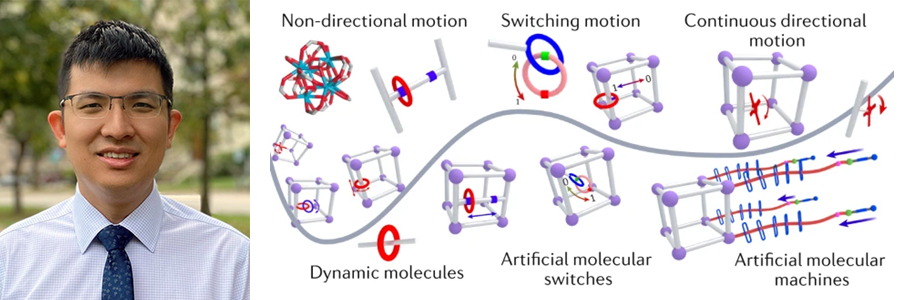A review article entitled “Controlling Dynamics in Extended Molecular Frameworks” has been published in Nature Reviews Chemistry by Postdoctoral Fellow Liang Feng.
Molecular machines are essential dynamic components for fuel production, cargo delivery, information storage and processing in living systems. Scientists have demonstrated that they can design and synthesize artificial molecular machines that operate efficiently in isolation — for example, at high dilution in solution — fuelled by chemicals, electricity or light. To organize the spatial arrangement and motion of these machines within close proximity to one another in solid frameworks, such that useful macroscopic work can be performed, remains a challenge in both chemical and materials science.
This review summarizes the progress that has been made during the past decade in organizing dynamic molecular entities in such solid frameworks. The authors highlight emerging applications of these dynamic smart materials in the contexts of molecular recognition, optoelectronics, drug delivery, photodynamic therapy and water desalination. The authors also review a recent work on a new non-equilibrium adsorption phenomenon for which they have coined the term mechanisorption. (Read more) The ability to use external energy to drive directional processes in mechanized extended frameworks augurs well for the future development of artificial molecular factories. They point out the future challenges in six aspects, including Control of Directional Motion / Non-Equilibrium Extended Structures / Trajectory Thermodynamics / Diversity and Function / Mechanisorption / Amplifying Molecular Motion. Congratulations to Liang!
Pictured below — Liang alongside the Graphical Abstract from his review in Nature Reviews Chemistry:


